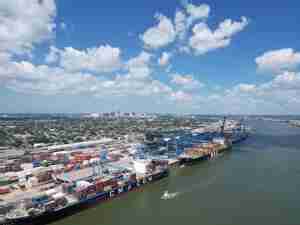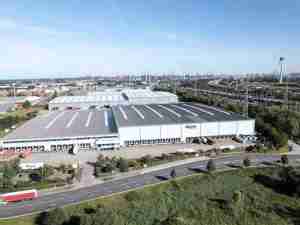Port Authority acquires NMP pipeline company
posted by AJOT | Nov 24 2017 at 10:46 AM | Ports & Terminals
Antwerp Port Authority is to acquire Nationale Maatschappij der Pijpleidingen (NMP) from its current shareholders Ackermans & van Haaren and Electrabel. With the takeover Antwerp Port Authority will gain ownership and control of 720 km of pipelines, 90% of which serve the chemical and petrochemical companies in the port of Antwerp and its hinterland. The Port Authority is paying 44 million euros for the NMP shares.
“Pipelines are the ideal mode of transport for the chemical industry and oil refining,” explains Port Authority CEO Jacques Vandermeiren. “By giving them access to a pipeline network that is open to all users we gain on at least two fronts: we help to reinforce the presence in the port of this sector which is so important for the economy of Belgian and Flanders, and the many logistics flows in and around the port area are further established in the Antwerp region. Furthermore, pipelines are the most environment-friendly, energy-efficient and safe means of transport, and they help to create growth opportunities as part of the energy transition, an area in which we with our unique platform play a key role.”
NMP pipeline network
The current NMP portfolio is mainly concentrated in the port of Antwerp and pipelines leading to and from it. NMP at present obtains 86% of its income from 600 km of pipelines within the port area or connecting the Antwerp cluster companies with petrochemical companies in Kempen (Flanders) and Feluy (Wallonia). Another 11% comes from joint ventures that manage 117.5 km of pipeline, of which 67.8 km is located in the port of Antwerp.
The NMP pipelines mainly carry ethylene, propylene and technical gases for customers in the port and in the hinterland.
Modal shift
NMP was set up in 1978 by the Belgian State in order to coordinate the Belgian pipeline network for transport of petrochemical products. The shares in the company were until now held 75% by Ackermans & van Haaren and 25% by Electrabel.
Since pipeline transport is an important link in the cost-efficient logistical chains of the many chemical and petrochemical companies in the port, the Port Authority was extremely interested in the opportunity of acquiring the NMP shares. “Our cluster companies confirm the importance of pipelines, but the high initial investment cost is frequently a barrier preventing them from actually switching to pipeline transport,” explains Jacques Vandermeiren. “Because we really want to make the modal shift happen, with goods being carried by sustainable transport methods such as rail and barge, as well as by pipeline, not only are we taking over control of this pipeline network but we also seek to harness the know-how and expertise of the NMP personnel to further expand this network. In this way the present chemical companies and others who come along in future will have an easier transition to pipeline transport, which is the most sustainable option for them.”
Energy transition
In the near future pipelines will undoubtedly play an important role in the energy transition. As well as being used to carry e.g. hydrogen and CO2 they are also essential for development of heat distribution networks.









